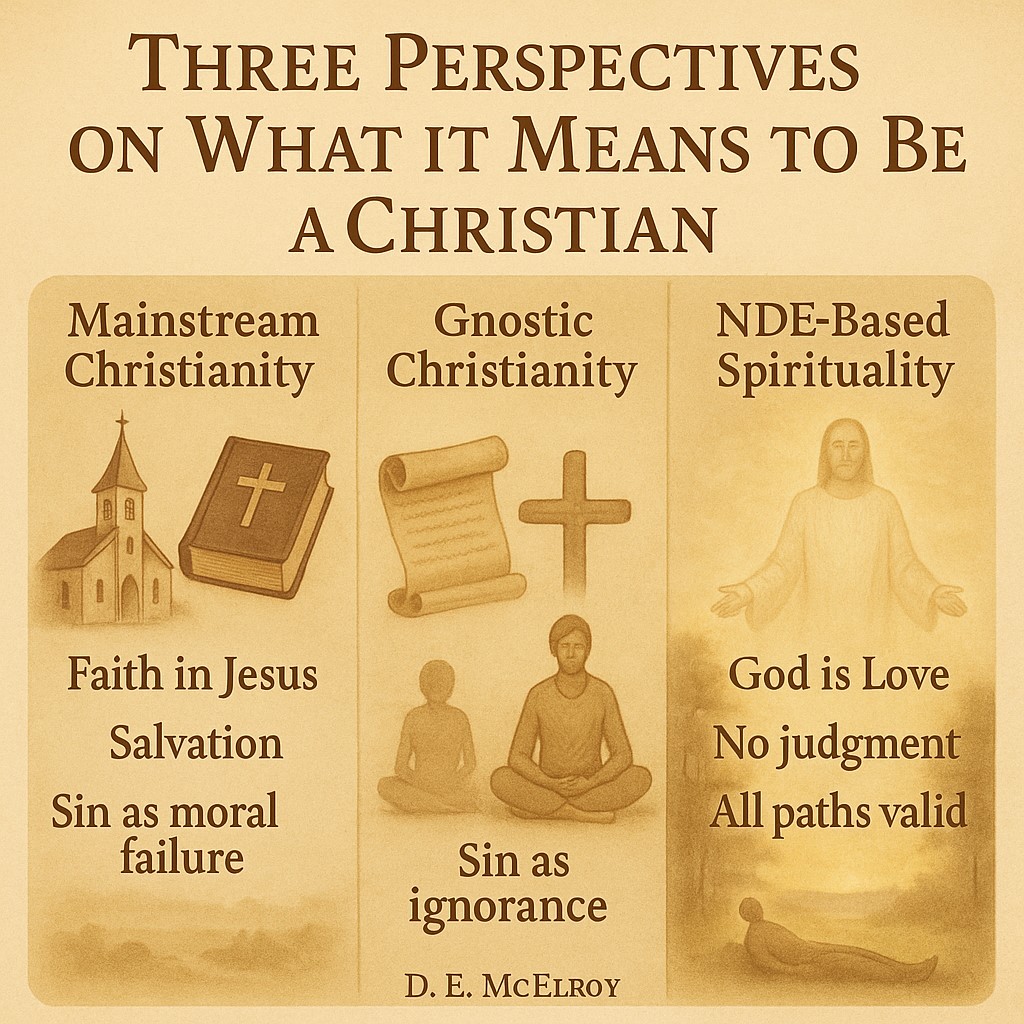
🔹 What is the standard, or
most accept definition of a Christian?
The most accepted and standard definition of a Christian is:
A person who believes in Jesus Christ as the Son of God and Savior, and follows his teachings.
Expanded Definition:
A Christian is someone who:
-
Believes that Jesus of Nazareth is the Christ (Messiah) and the divine Son of God.
-
Accepts Jesus' life, death, and resurrection as the basis for forgiveness of sins and eternal life.
-
Follows the teachings and example of Jesus, often guided by the New Testament.
-
May belong to one of the many Christian traditions, such as Catholicism, Protestantism, Eastern Orthodoxy, or non-denominational Christianity.
Key Elements (in most mainstream definitions):
| Element | Explanation |
|---|---|
| Faith in Jesus Christ | Belief in his divinity, teachings, death, and resurrection |
| Baptism (in many traditions) | A sacrament or public declaration of Christian identity |
| Scripture | Acceptance of the Bible (especially the New Testament) as sacred and authoritative |
| Discipleship | Effort to live by the moral and spiritual example of Jesus |
| Community | Often involves participation in a church or fellowship of believers |
Short Definitions from Major Sources:
-
Merriam-Webster: "One who professes belief in the teachings of Jesus Christ."
-
Oxford English Dictionary: "A person who has received Christian baptism or is a believer in Christianity."
-
Cambridge Dictionary: "Someone who believes in and follows the teachings of Jesus Christ."
Here’s a detailed comparison of what defines a “Christian” across three perspectives:
🔹 1. Mainstream Christian Definition (Modern/Traditional)
This is the widely accepted, institutional definition held by most churches today.
| Aspect | Mainstream Christianity (e.g., Catholic, Protestant, Orthodox) |
|---|---|
| Core Belief | Jesus is the Son of God, died for humanity’s sins, rose from the dead |
| Salvation | Comes through faith in Jesus Christ as Savior, often coupled with grace and works |
| Sin | Seen as rebellion against God; requires forgiveness through Jesus’ sacrifice |
| Authority | The Bible (especially New Testament) is the inspired Word of God |
| Practices | Baptism, communion, prayer, worship, church attendance |
| Christian Identity | One who believes in Christ and is often baptized and affiliated with a church |
🔹 2. Early Gnostic Christian Definition (e.g., Nag Hammadi texts)
Gnosticism (especially early Christian Gnostics) presented a very different, often esoteric view.
| Aspect | Gnostic Christianity (Nag Hammadi, Gospel of Thomas, Gospel of Mary, etc.) |
|---|---|
| Core Belief | Jesus was a revealer of hidden knowledge (gnosis) about our divine origin |
| Salvation | Not through belief or blood sacrifice, but through inner awakening and knowledge |
| Sin | Often seen as ignorance or forgetfulness—not disobedience; Jesus says in Gospel of Mary: “There is no such thing as sin.” |
| Authority | Emphasis on direct spiritual experience; scriptures are symbolic, not literal |
| Practices | Meditation, self-knowledge, spiritual discipline, often private or mystical |
| Christian Identity | One who seeks spiritual awakening and knows their origin is divine (spark of God) |
📜 Gospel of Thomas (Logion 3): "If those who lead you say to you, 'See, the kingdom is in the sky...' then the birds of the sky will precede you.
Rather, the kingdom is inside you and it is outside you."
🔹 3. Modern NDE-Based Definition (From Near Death Experience survivors)
Those who have experienced NDEs often redefine what it means to be Christian or spiritual based on their direct encounters with divine love.
| Aspect | NDE-Informed Spirituality |
|---|---|
| Core Belief | God is Pure Love. Jesus is a radiant, loving being but not exclusive to salvation |
| Salvation | Not needed—souls are already part of God; life is for growth, not judgment |
| Sin | Seen as mistakes or lessons; judgment comes only from within, if at all |
| Authority | No single book is authoritative; truth is in divine love and experience |
| Practices | Love, kindness, forgiveness, compassion—these define spiritual maturity |
| Christian Identity | Not always used. “Being Christian” may mean following Jesus’ loving example, but many see all paths as valid |
💬 NDE Quote: “I saw Jesus, and he radiated more love than I can describe. He didn’t care about religion. He cared about how we loved others.”
🔸 Summary Table
| Perspective | View of Jesus | Salvation | Sin | Key Practice/Path |
|---|---|---|---|---|
| Mainstream | Divine Savior | Faith in Jesus | Moral disobedience | Church, belief, baptism |
| Gnostic | Spiritual teacher | Inner knowledge (Gnosis) | Ignorance | Awakening to true self |
| NDE | Being of Love | Already united with God | Learning opportunities | Love, compassion, truth |
WCM
International Music Page
Sins Page
Animal Lovers
Page Our
Earth Today Page